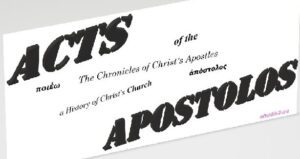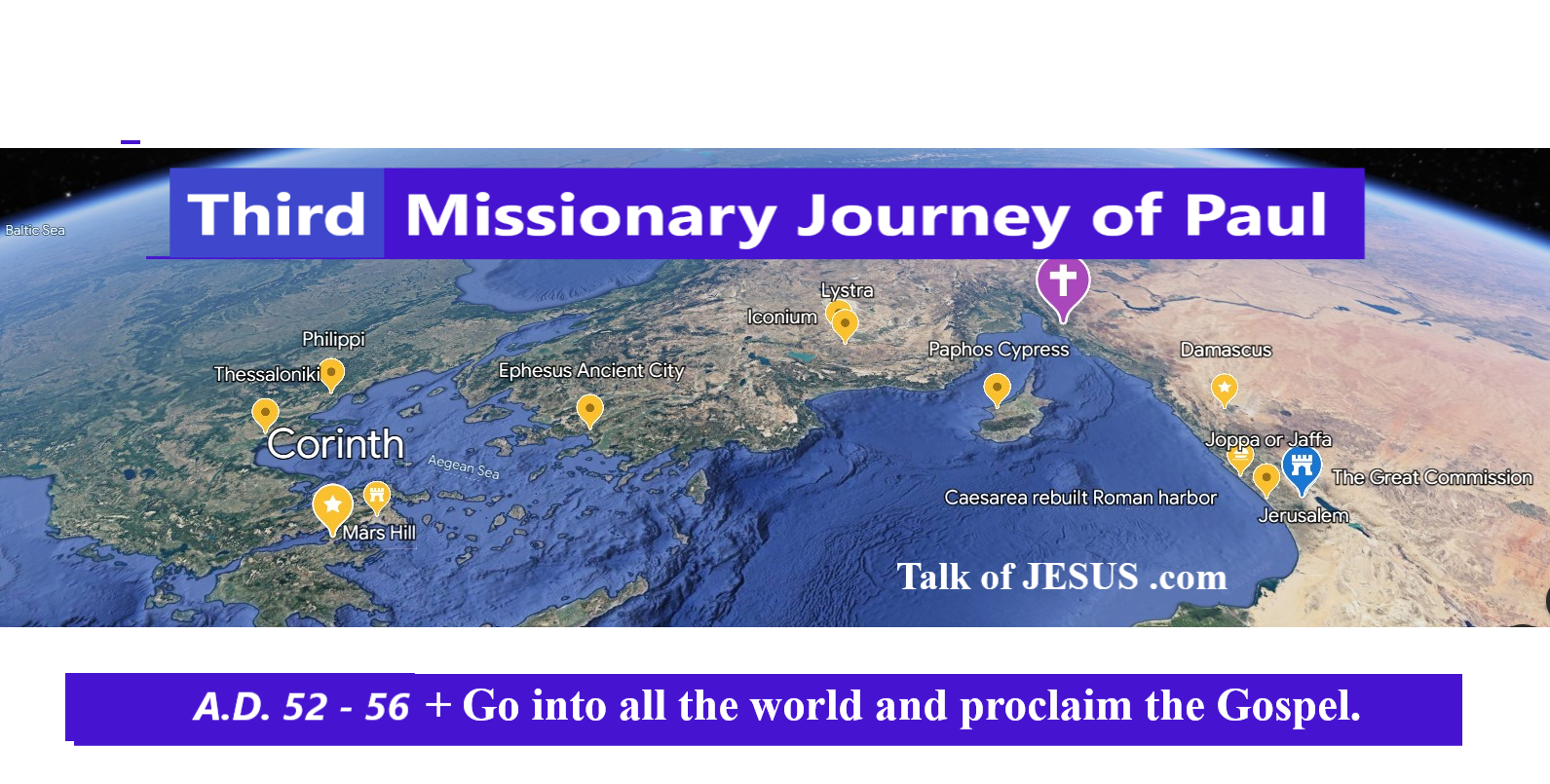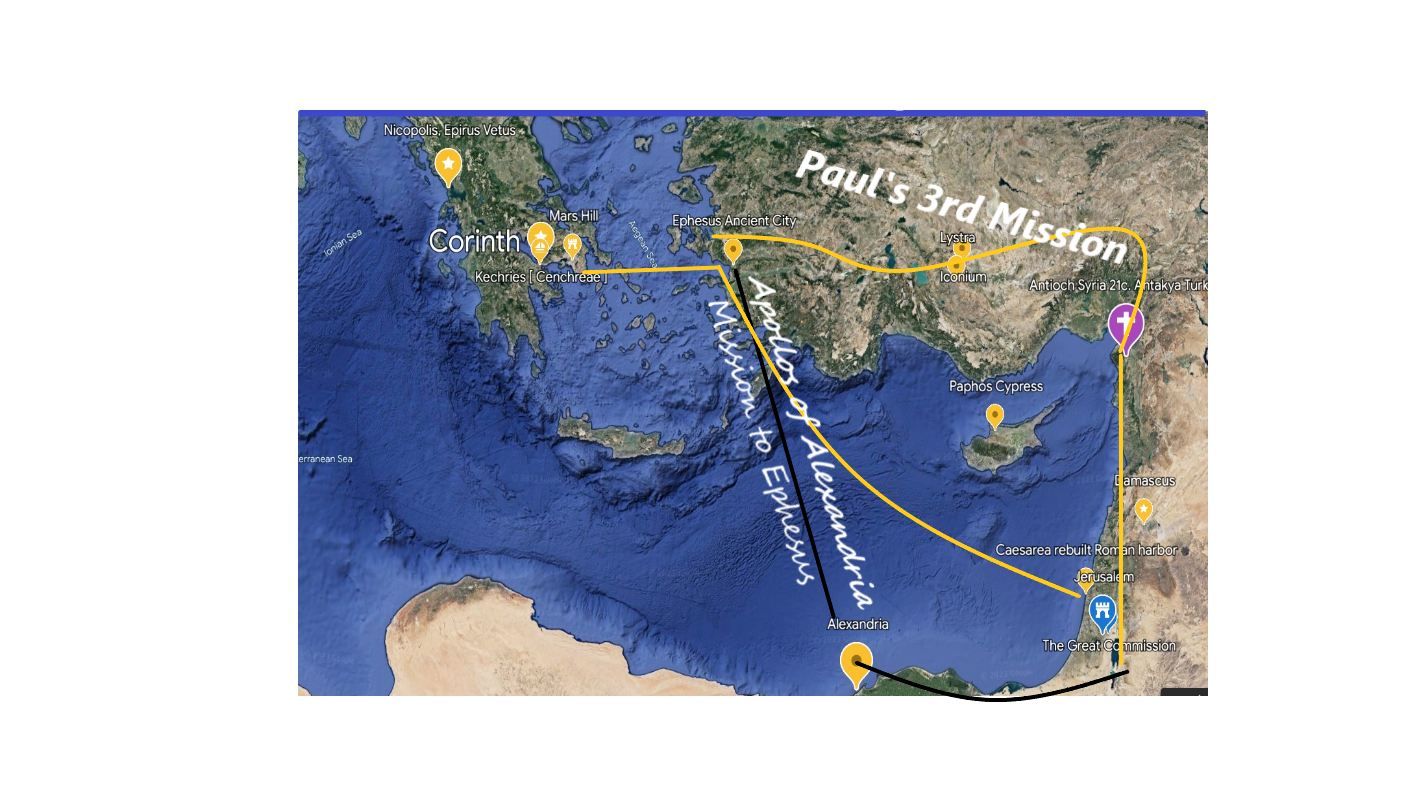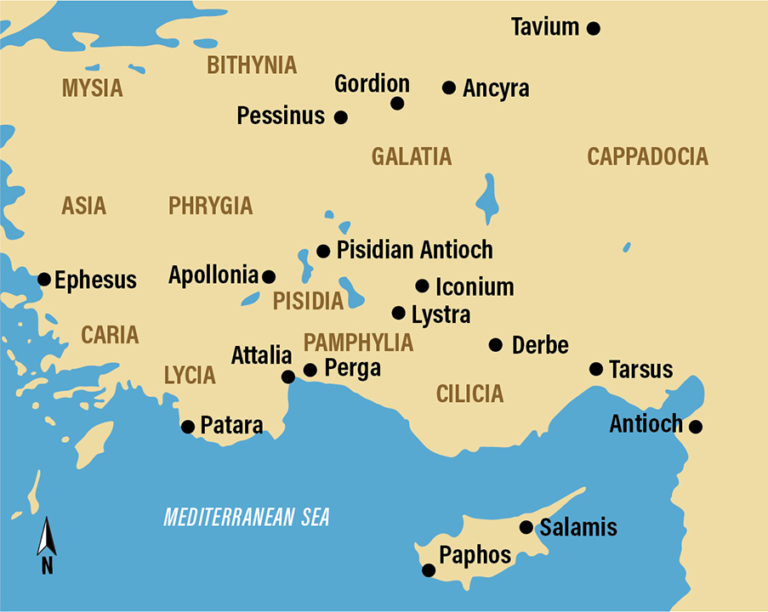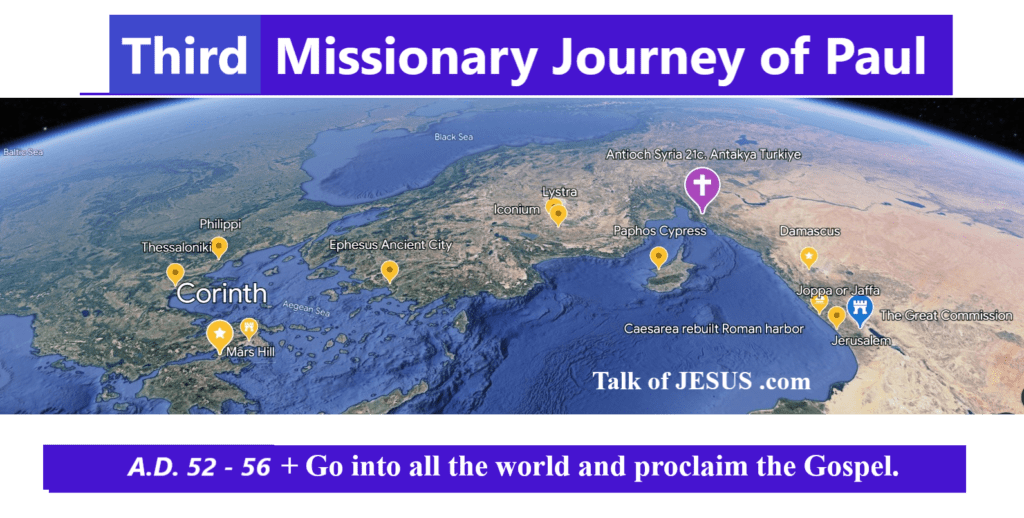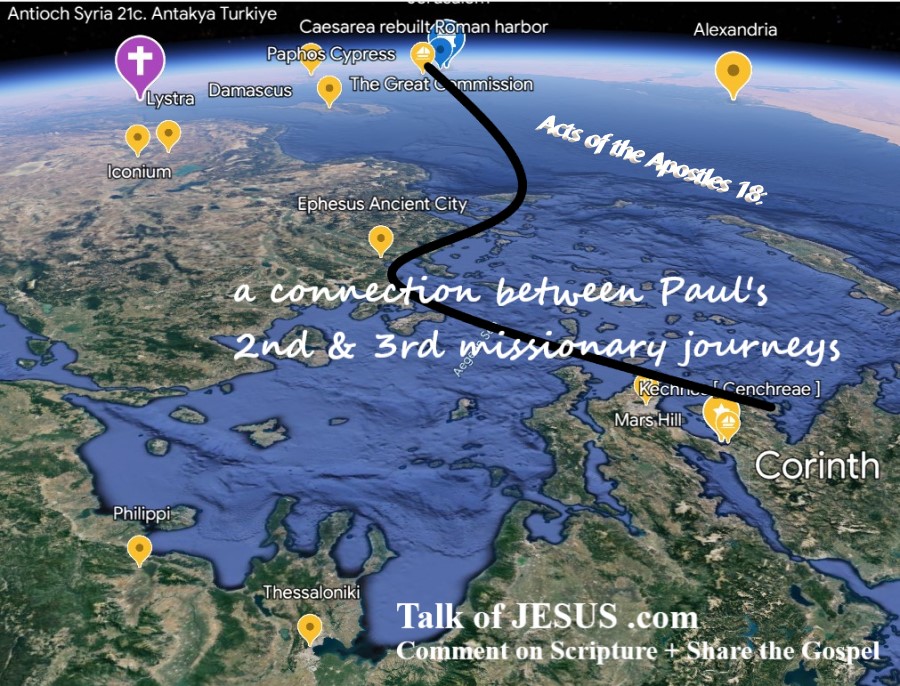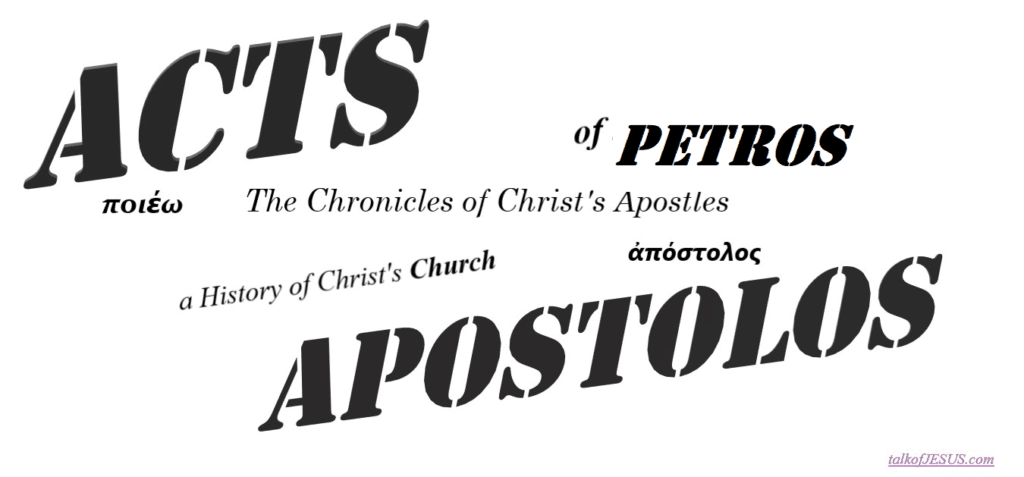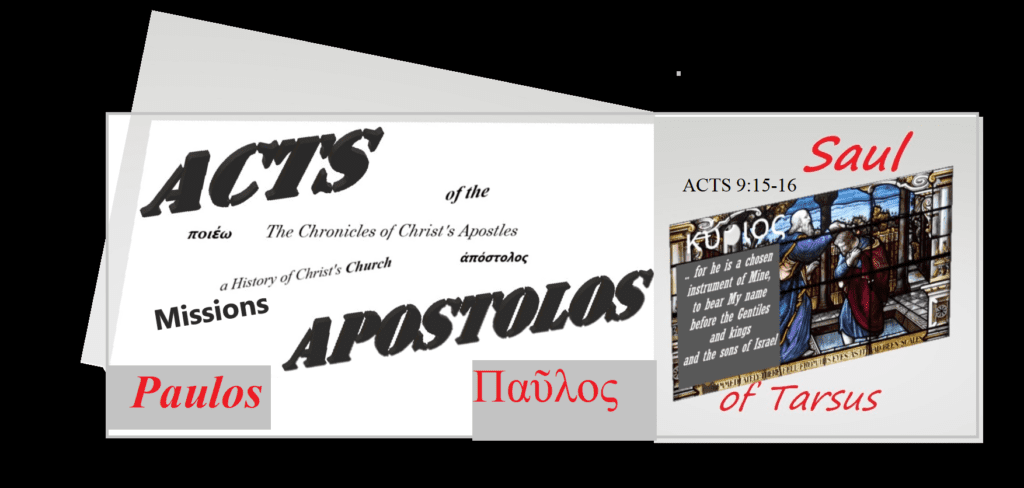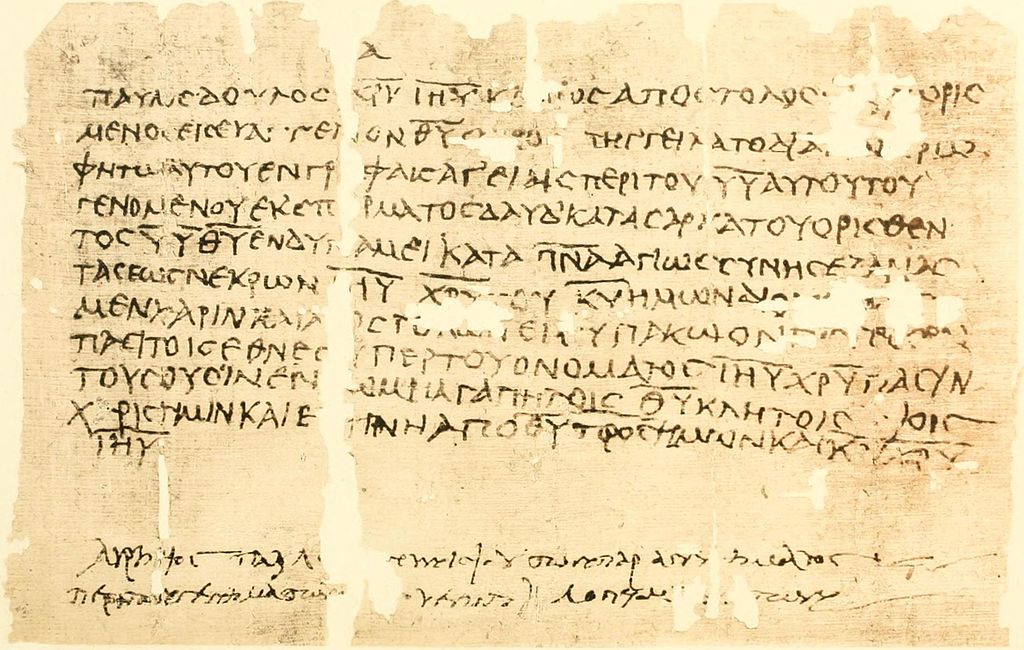Preaching the Lord Jesus
What was the difference in the preaching of Apollos and Paul?
In Acts of the Apostles 19 Luke gives it to us straight. Paul discovers some disciples who have already heard the powerful preaching of Apollos.
Let's take a look at Luke's account translated authoritatively in the King James Version:
And it came to pass, that, while Apollos was at Corinth, Paul having passed through the upper coasts came to Ephesus: and finding certain disciples,
He said unto them, Have ye received the Holy Ghost since ye believed?
And they said unto him, We have not so much as heard whether there be any Holy Ghost.
SO WHAT WAS PAUL’S FIRST CONCERN ABOUT AN APPARENT LACK OF ZEAL FOR CHRIST?
The HOLY Ghost, who we will return to once we examine today’s map of where Paul and Apollos have been AND when these men preached the Gospel.
Apollos – Itinerary to Corinth
Of course before he departed for home a year ago via Ephesus, PAUL had already preached in Corinth.
PLUS out of his concern for the Corinthians Paul will soon write two epistles to their church about three years from now.
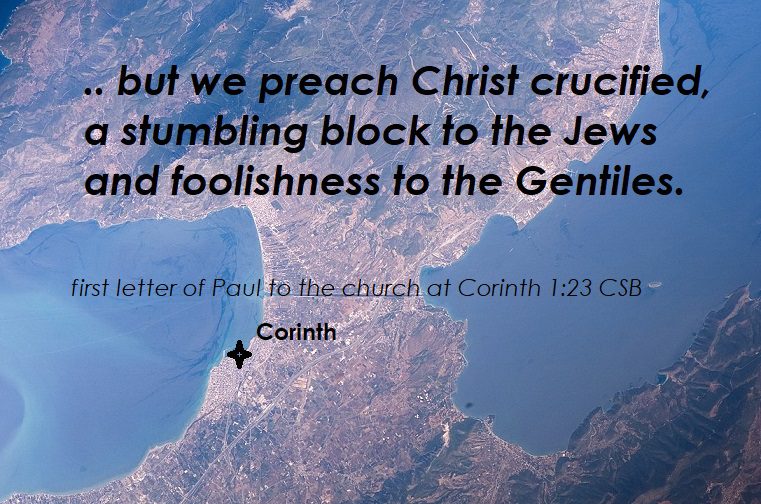
Luke’s account also provides details from about three years earlier in A.D. 49 that the Emperor Claudius had commanded all the Jews to leave Rome. – Acts 18:2
Consequently this was how Apollos came to meet Aquila and Priscilla, fellow Jews now disciples of Jesus Christ in Ephesus [~A.D. 52].
Alexandria, home of Apollos on the north coast of Africa, was a key Roman port as you might imagine from viewing the map in our previous post of Paul and Apollos crossing paths in the Aegean, where Corinth and Ephesus, in addition to Philippi where Rome had won a key battle, became strategic ports of Rome for their legions, navy and commerce by sea, as well as entry points to inland travel for everyone mostly on Roman roads.
Apollos, Aquila and Priscilla in Ephesus
Luke records that this powerful preacher Apollos had proclaimed JESUS boldly to the Jews, but when Priscilla and Aquila heard him, they took him aside and explained to him the way of God more accurately. [Acts 18:26]
THEN they encourage Apollos to go on to Corinth, Achaia where he will proclaim a more accurate Gospel. Yet many have already accepted Apollos’ preaching in Ephesus, even as Paul will encounter these on his way into to city.
What preaching is POWERFUL or Eloquent?
(AND WHY did Aquila and Priscilla take such an articulate preacher of Scripture aside?)
Luke describes Apollos’ preaching as eloquent
λόγιος, λόγιον (λόγος), in classical Greek 1. learned, a man of letters, skilled in literature and the arts; especially versed in history and antiquities. 2. skilled in speech, eloquent: so Acts 18:24
AND mighty in the scriptures
Paul will later write to the Corinthians whom he left earlier and where Apollos now preaches:
For I delivered to you as of first importance what I also received:
that Christ died for our sins in accordance with the Scriptures,
that he was buried,
that he was raised on the third day in accordance with the Scriptures..
Whether then it was I or they, so we preach and so you believed.
Paul’s first Epistle to the Corinthians 15:3-4,11
Apollos preaches the (O.T.) Scriptures accurately explaining how JESUS fulfills the old covenant. Priscilla and Aquila, companions of Paul understanding the Apostle’s testimony well, point Apollos to a more accurate and complete Gospel.
Again, Paul later reminds the Corinthians to stand firm in what he has preached.
And as always, here in Ephesus, Paul tests the teachings of those the he encounters as the Apostle has always done in so many far removed places of a vast Roman Empire.
Paul – Itinerary to Ephesus
The Apostle Paul once again begins his third missionary journey across land, even as he had previously with Silas as they left their home church in Antioch Syria.
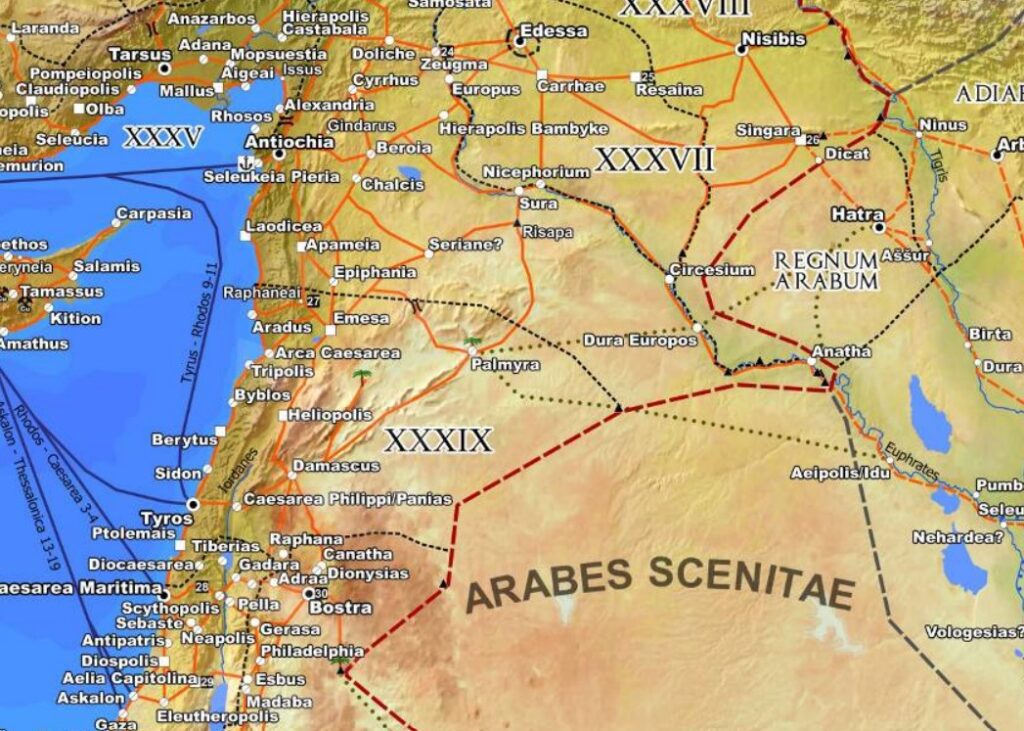
Luke does not detail specific stops of these apostles on the way to Ephesus, but has stated that their purpose was to build up the church where established new followers of the Lord Jesus Christ – GENTILE followers join in worship with JEWISH followers.
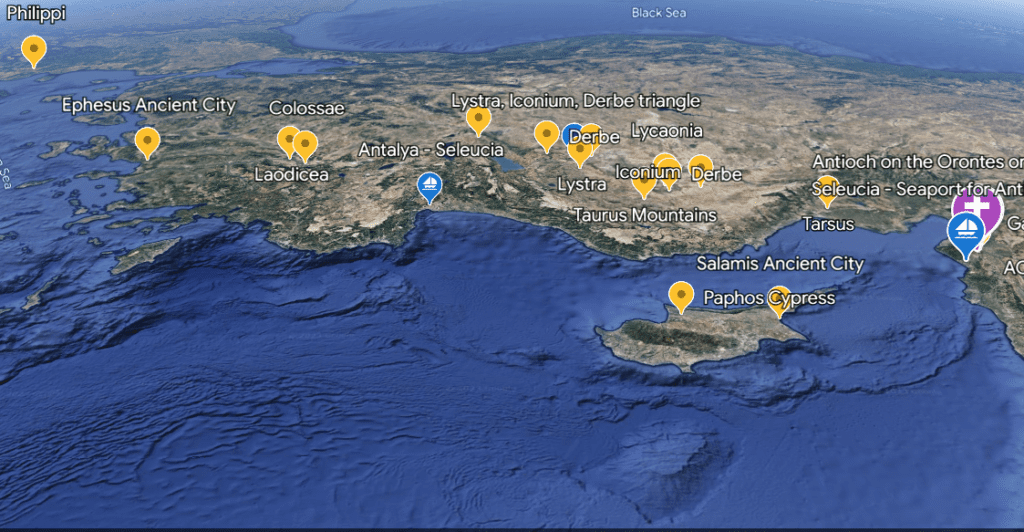
Have YOU received the HOLY Spirit?
As Paul nears Ephesus to the west from Laodicea and Colossae the Apostle inquires what believers truly believe.
In fact, these might be good questions for YOU as you worship alongside followers of Christ more mature in their faith and refined in the true Gospel of Scripture.
- If you did NOT receive the Holy Spirit when baptized, then WHAT if anything CHANGED?
- And YOU REPENTED of what?
- So are YOU permanently CHANGED from what old SINS to what RIGHTEOUSNESS in CHRIST?
Luke’s account of Paul asking such questions goes like this:
Acts 19 – Paul in Ephesis
There he found some disciples. 2 And he said to them,
“Did you receive the Holy Spirit when you believed?”
And they said, “No, we have not even heard that there is a Holy Spirit.”
3 And he said,
“Into what then were you baptized?”
They said, “Into John’s baptism.” 4 And Paul said, “John baptized with the baptism of repentance, telling the people to believe in the one who was to come after him, that is, Jesus.”
5 On hearing this, they were baptized in the name of the Lord Jesus.
6 And when Paul had laid his hands on them, the Holy Spirit came on them, and they began speaking in tongues and prophesying.
7 There were about twelve men in all.
A POWERFUL Sign for powerless disciples
Here in Ephesus the Lord again provides a sign through the HOLY SPIRIT by the hand of the APOSTLE PAUL!
but you will be baptized with the Holy Spirit not many days from now.”
Acts 1:4b NASB
This is not unlike in Luke’s introduction in ACTS of the Apostles which took place some twenty years before back in an upper room in Jerusalem where the TWELVE and other disciples had been commanded by the Lord Jesus to wait.
Do not be sidetracked by the sign of the Holy Spirit given in these early days of the Gospel by the POWER of the laying on of hands OR the MYSTERY of speaking in tongues OR the prophesy given by God to speak what is to be in these last days.
These disciples of hoped-for righteousness remained powerless by their mere turning from the sin of the past to works hoping to please God. JOHN baptized JESUS and confirmed that HE IS the ONE to come!
CHRIST CRUCIFIED,
CHRIST BURIED WITH OUR SINS,
CHRIST RISEN IN THE BODY AND SPIRIT,
CHRIST RISEN AND SENDING out THE HOLY SPIRIT to those chosen before time,
CHRIST raising SINNERS forgiven IN HIM to remain with HIM always…
Rather than be raised to a JUDGMENT where the LORD could choose to say,
I NEVER KNEW YOU. Go away to ETERNAL punishment.
Luke will continue with another example of PREACHERS seeking POWER like that of Paul.
ACTS of the Apostles — To Be Continued, God-willing
Talk of JESUS . com
Comment on Scripture – Share the Gospel
